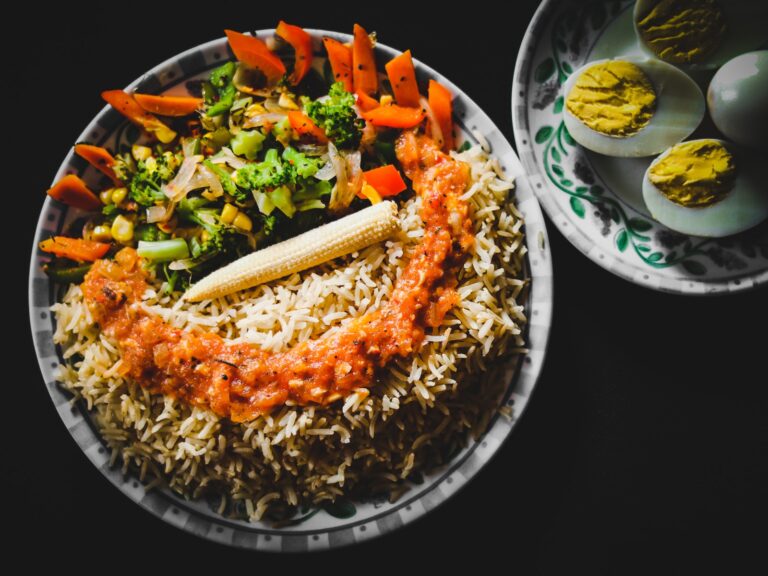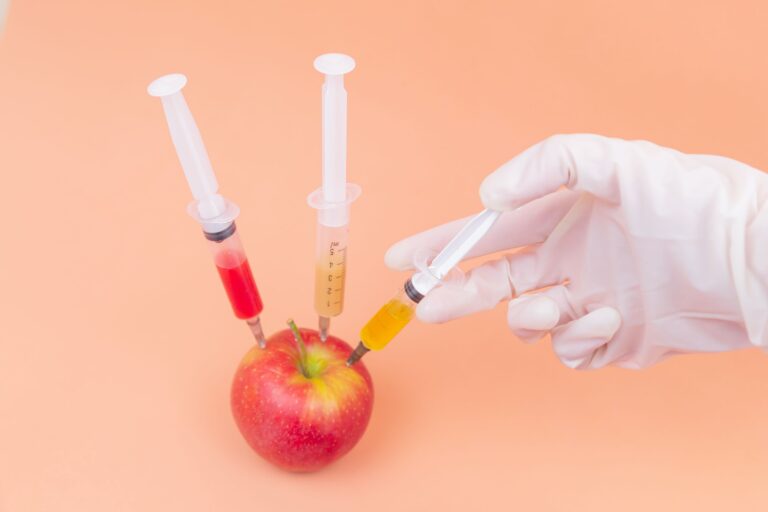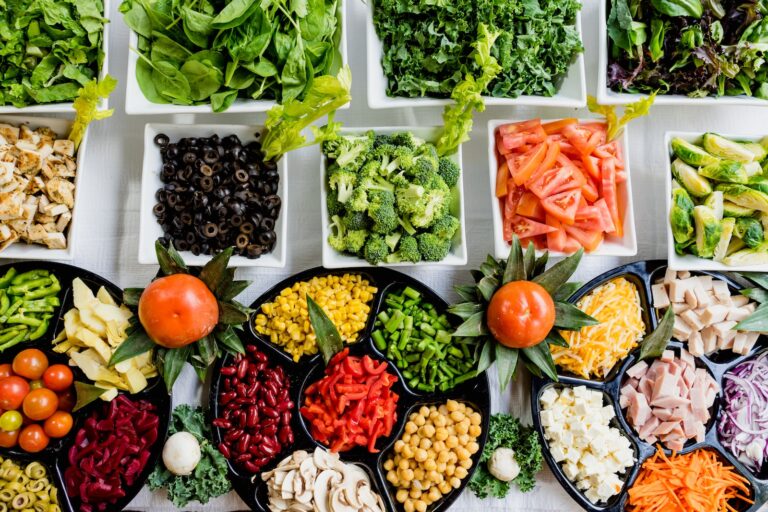The Pros and Cons of Popular Diet Trends
Are you tired of hearing conflicting diet advice everywhere you turn? With so many trendy diets out there, it can be overwhelming to determine which one is right for you. From the keto diet to intermittent fasting, each approach promises different results and benefits. But what are the actual pros and cons of these popular diet trends?
In this blog post, we’ll take a closer look at some of the most common fad diets on the market today and explore their potential benefits as well as their drawbacks. Get ready to discover what works (and what doesn’t) when it comes to achieving your health goals through diet!
Pros of a Plant-Based Diet

There are many benefits to a plant-based diet, including:
- Lower environmental impact
- Fewer animal products consumed
- Sustainability concerns with factory farming and livestock production
Some potential drawbacks to following a plant-based diet include:
- Weaknesses in key nutrients such as B12 and iron, which can be addressed by supplementation.
- Difficulties when travelling or living isolated from plant sources, potentially requiring specialized diets or food storage techniques.
- Lack of variety when it comes to veganism, meaning that some aspects of traditional cuisine may not be accessible or palatable.
Pros of a Low Carbohydrate Diet
There are a number of benefits to following a low carbohydrate diet, including:
-Weight loss – A 2016 study published in the journal Diabetes found that people following a low carbohydrate diet were more likely to lose weight than those on a high carbohydrate diet. Another study from the same year found that after 12 weeks, participants on a low carb diet lost significantly more weight and body fat than those on a high carb diet.
-Improved blood sugar control – While it’s still not clear why low carb diets are better at managing blood sugar, research suggests that the transition to this type of eating may help improve blood sugar control in people with diabetes.
-Lower risk of heart disease and stroke – Several studies have shown that people who follow a low carbohydrate diet are less likely to develop heart disease or stroke than those who follow a high carbohydrate diet. This is likely due to the fact that lower levels of unhealthy “bad” cholesterol tend to accompany low carbohydrate diets.
-Reduced risk of colon cancer – One study found that people who followed a low carbohydrate diet were 75 percent less likely to develop colon cancer than those who followed a high carb diet. Researchers aren’t sure why this is, but they believe it may be related to the decreased levels of insulin and inflammation which often accompany low carbohydrate diets.
Pros of a High Protein Diet
A high protein diet has a lot of benefits. It can help you lose weight, maintain muscle mass, battle chronic diseases and improve overall health. Here are five Pros of a High Protein Diet:
- Weight Loss : If you’re looking to lose weight, a high protein diet is a great option. Protein helps you feel satiated longer so you won’t overeat later on. And since protein contains fewer calories than other foods, it’s especially beneficial for weight loss goals.
- Muscle Mass Maintaining : One of the biggest benefits of a high protein diet is that it helps prevent muscle loss. Protein helps build and preserve muscle tissue while helping burn fat. This makes it an ideal choice for people who want to maintain their physique or gain muscle mass.”
- Improved Overall Health : Studies have shown that people who eat a high-protein diet have a lower risk of developing chronic diseases such as heart disease, stroke, type 2 diabetes and some forms of cancerous tumor.”
- Increased Excitability and Stamina : Another benefit of a high protein diet is that it can increase your excitability and stamina. Protein is a key nutrient for energy production, and eating more of it can help you stay energized throughout the day.”
The Pros of a Plant-Based Diet
- It can be nutrient dense. A plant-based diet is high in fiber, vitamins, minerals, and antioxidants. This means that it is a good source of nutrients and provides significant health benefits.
- It is sustainable. Eating a plant-based diet conserves resources like water and energy. It also reduces environmental impact because farming animals requires lots of land and water resources.
- There are health benefits to a plant-based diet. Plant-based diets are linked with lower risks for heart disease, type 2 diabetes, certain types of cancer, and more. They can also improve cholesterol levels and regulate blood sugar levels better than diets high in meat or dairy products.
- It is environmentally friendly. Farming animals for food uses a lot of resources – including land, water, feed, and energy – that could be used to support other activities instead. A plant-based diet supports sustainability goals while reducing environmental impact!
- It is cheaper than factory farming. A plant-based diet cost less to produce than an animal-based diet, and it requires fewer resources to sustain. This means that it is a good option for people who want to reduce their environmental impact and save money.
- It is healthy for your conscience. Many people believe that eating animals is wrong because they feel that the animals were treated poorly before they were killed. A plant-based diet is the next best option, because the food was grown in a sustainable way and there were no animal deaths involved.
- It is humane. Factory farming methods, which are used to raise animals for food, are often cruel and inhumane. People who eat a plant-based diet are supporting humane treatment of animals – something that many people find appealing!
The Cons of a Plant-Based Diet
- It can be harder to get enough nutrients on a plant-based diet than an animal-based diet. This is due to the fact that plants don’t contain as many nutrients as meat and dairy products do.
- It can be more expensive than a standard diet. One of the benefits of a plant-based diet is that it is cheaper than a diet high in meat and dairy products. However, a plant-based diet can also be more expensive due to the fact that it requires more resources to produce.
- It is not as filling as an animal-based diet. Some people find it harder to get the nutrients they need on a plant-based diet because they don’t eat enough protein, carbs, or fat. This can lead to weight loss difficulties and cravings for unhealthy foods.
- It can be harder to get enough variety on a plant-based diet. People who eat a plant-based diet usually have to seek out options like veganism or vegetarianism, which can be challenging if you don’t have a ton of knowledge about food options like this.
- It doesn’t have the same taste as an animal-based diet. Some people find it difficult to enjoy meals that are based on plants instead of meat and dairy products. This may be because some of the flavors in these foods can be different than what they are used to.
Cons of a Low Carbohydrate Diet
There are a few major cons to following a low carbohydrate diet, as opposed to a more balanced one. First and foremost, low-carbohydrate diets are often lower in essential nutrients like potassium, magnesium, and zinc. Additionally, they can lead to problems such as constipation and diarrhea. And finally, people on low-carbohydrate diets have a higher risk of developing diabetes or heart disease.
Cons of a High Protein Diet
There are a few potential cons to following a high protein diet. The first is that it can be difficult to get enough protein in your diet if you’re not also including other nutrient-rich foods. Second, high-protein diets can be linked with an increased risk for kidney injury. Third, protein is not the only nutrient required for muscle growth and repair; thus, a high-protein diet may actually limit your ability to achieve optimal fitness outcomes.
Conclusion
So which diet trend is right for you? It can be tough to decide, but hopefully this article has helped you form some initial thoughts. When it comes to weight loss, popular diets like the ketogenic and paleo diets both have their benefits and drawbacks. If you’re looking to cut down on carbs or grains (which are often linked with obesity), a ketogenic diet might be right for you. However, if you’re seeking a more widespread health benefit, like improved blood sugar levels or better brain function, then a paleo lifestyle might be better suited for you. Ultimately it all comes down to personal preference- so give each diet a try and see what works best for your unique body and lifestyle.






